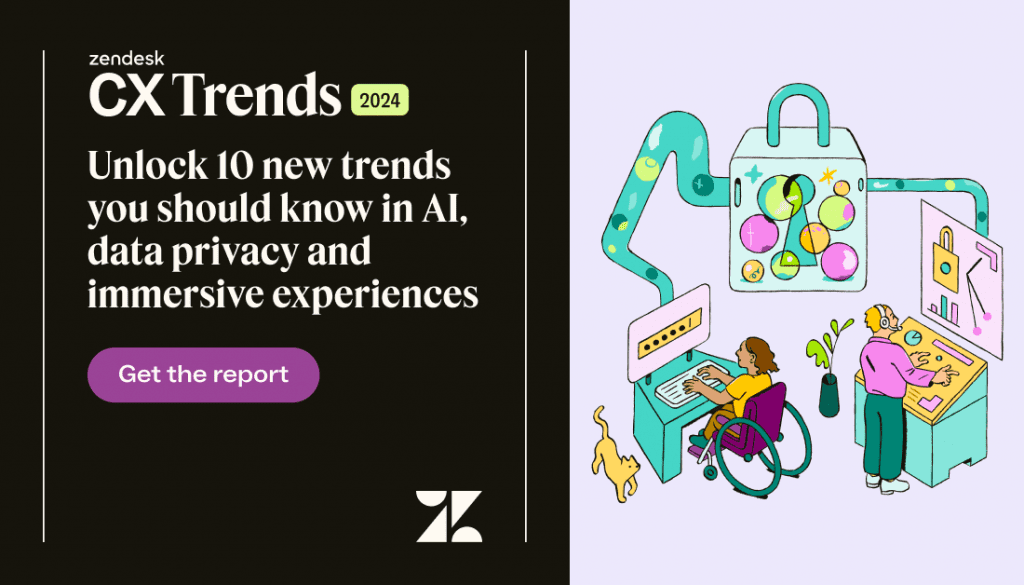Artificial Intelligence (AI) is no longer just a futuristic concept—it’s a cornerstone of modern business strategies. From automating processes to predicting customer behaviour, AI has revolutionised how organisations operate. But with great power comes great responsibility. The rise of AI has also sparked critical questions about ethics and accountability.
Disclosure: If you click on my affiliate/advertiser’s links, I am going to receive a tiny commission. AND… Most of the time, you will receive an offer of some kind. It’ s a Win/Win!
Enter Ethical AI. This isn’t just a modern craze; it’s a framework for ensuring AI systems are transparent, fair, and beneficial for everyone. Businesses adopting ethical AI principles not only mitigate risks but also build trust with their customers, employees, and stakeholders. After all, trust is the foundation of sustainable growth.
What does ethical AI involve? At its core, it’s about aligning technology with values. It’s ensuring your AI systems don’t reinforce biases, misuse data, or prioritise profits over people. In a world where consumers are increasingly concerned about privacy and fairness, ethical AI isn’t just the right thing to do—it’s a smart business move.
Companies like Microsoft, IBM, and Google are setting the bar by implementing ethical AI frameworks and gaining competitive advantages. But ethical AI isn’t just for tech giants. Small and medium-sized businesses can also benefit by adopting responsible AI practices tailored to their needs.
In this article, we’ll explore why ethical AI matters, how businesses can adopt ethical AI certification and frameworks, and real-world examples of ethical AI in action. Whether you’re an entrepreneur or a decision-maker, this guide will show you how to leverage ethical AI to drive innovation and build lasting trust.
Enroll in the AI Product Manager Nanodegree Program for a comprehensive overview of AI and machine learning for business. You'll learn to build and train AI models, evaluate results, and measure success. Click HERE to get started NOW.Subtopics for discussion
1. What is Ethical AI?
Understanding what ethical AI involves and its importance in modern business.
2. The Principles of Ethical AI
Exploring the core ethical AI principles that guide responsible AI use.
3. Why Ethical AI Matters for Businesses
The benefits of adopting ethical AI and the risks of ignoring it.
4. Examples of Ethical AI in Action
Real-world use cases showcasing how companies implement ethical AI.
5. Ethical AI Frameworks and Certifications
An overview of popular ethical AI frameworks and certifications for businesses.
6. How to Build an Ethical AI Strategy
A step-by-step guide to implementing ethical AI in your organisation.
7. The Role of Leadership in Ethical AI
Why leaders must champion ethical AI initiatives within their organisations.
8. Overcoming Challenges in Ethical AI Adoption
Addressing barriers like cost, complexity, and organisational resistance.
9. The Future of Ethical AI in Business
Trends shaping the future of ethical AI and its role in business growth.
10. Practical Steps to Get Started with Ethical AI
Actionable tips for businesses ready to embrace ethical AI.
11. Summary and Conclusion: Ethical AI is a Business Imperative
1. What is Ethical AI?
Ethical AI refers to the development and deployment of artificial intelligence systems that are fair, transparent, and aligned with human values. Unlike traditional AI models that focus solely on efficiency and profitability, ethical AI prioritises accountability, privacy, and inclusivity.
But what does ethical artificial intelligence actually involve? At its core, it’s about creating AI systems that do no harm—whether to individuals, groups, or society at large. This includes ensuring that AI doesn’t reinforce biases, misuse personal data, or make decisions without human oversight. These concerns form the foundation of AI ethical guidelines that many organisations are adopting today.
Interestingly, the question “Is AI ethical or not?” isn’t a binary one. AI itself isn’t inherently good or bad—it’s a tool. Its ethicality depends on how it’s designed, deployed, and used. For example, AI systems trained on biased datasets may unintentionally perpetuate inequalities, while well-designed models can promote fairness and inclusivity.
Many organisations, from tech giants to startups, are now focusing on ethical AI principles as a way to address these challenges. For small businesses, this might involve implementing privacy-focused AI tools or adopting ethical AI frameworks that ensure transparency and accountability (see the article “System Vulnerabilities: Safeguarding Your Business in a Digital World” for more on AI system security).
Actionable Tip: Begin your ethical AI journey by identifying potential risks in your current AI systems. Use this assessment to develop a roadmap for ethical AI adoption.
2. The Principles of Ethical AI
Creating responsible AI practices begins with adhering to key principles that guide its ethical use. These principles are designed to ensure that AI systems are fair, accountable, and beneficial to society.
1. Transparency
AI systems should operate in a way that’s understandable to users. This means making it clear how decisions are made and allowing users to question those decisions if necessary.
2. Fairness
One of the most critical ethical issues related to AI is bias. Ethical AI eliminates discriminatory biases in data and algorithms, promoting fairness for all users.
3. Accountability
Developers and businesses must take responsibility for the outcomes of their AI systems. This includes creating AI ethical guidelines to govern the use of these technologies.
4. Privacy
With increasing concerns about data misuse, what is ethics in AI often revolves around protecting user privacy. Ethical AI minimises the collection of personal data and ensures secure handling of information.
5. Inclusivity
AI should be accessible and beneficial to everyone, not just select groups. This principle aligns with broader goals of diversity and inclusion in technology.
These principles aren’t just theoretical—they’re actionable. Companies like IBM have created AI codes of ethics that formalise these principles into actionable policies, while others are hiring for AI ethics jobs to oversee these efforts.
Actionable Tip: Evaluate your AI projects against these principles to identify gaps and areas for improvement.
Edureka Big Offers – Unlock Savings with AMEX Bank Card3. Why Ethical AI Matters for Businesses
Adopting ethical AI principles isn’t just about avoiding scandals or regulatory penalties—it’s about building trust, enhancing reputation, and unlocking long-term success. The benefits of ethical AI for businesses are significant, especially in a world where customers are increasingly concerned about ethical issues related to AI.
1. Building Trust
Consumers are more likely to support companies that prioritise ethics. For instance, adopting ethical AI guidelines signals to customers that your business values fairness and privacy.
2. Driving Innovation
Ethical AI promotes diverse perspectives, which lead to better decision-making and innovation. Inclusive AI systems cater to broader audiences, opening up new market opportunities.
3. Reducing Risk
Ignoring ethics in AI can lead to costly lawsuits, data breaches, and reputational damage. Implementing ethical AI frameworks mitigates these risks by ensuring compliance with laws and best practices.
4. Strengthening Team Morale
Employees want to work for companies that align with their values. Businesses that champion ethical AI attract top talent, including those seeking jobs in AI ethics.
5. Staying Competitive
With laws like GDPR and emerging AI ethics laws, regulatory compliance is becoming a competitive advantage. Companies ahead of the curve position themselves as leaders in ethical innovation.
Actionable Tip: Use tools like ethics checklists or vulnerability scanning software to evaluate the ethical risks of your AI systems (see “System Vulnerabilities: Safeguarding Your Business in a Digital World”).
The Ethics of Artificial Intelligence: Principles, Challenges, and Opportunities
4. Examples of Ethical AI in Action
Ethical AI isn’t just an abstract concept—it’s being implemented by forward-thinking companies across industries. These organisations show how ethical AI can create tangible business benefits.
1. Microsoft
Microsoft’s AI for Good initiative focuses on using AI to solve societal challenges, from environmental conservation to accessibility. By adhering to ethical AI principles, they’ve created tools that empower individuals and communities.
2. IBM
IBM’s Watson Health platform integrates AI ethical guidelines to ensure privacy and fairness in healthcare. Their commitment to ethical AI frameworks has positioned them as a leader in responsible innovation.
3. Google
Despite facing criticism in the past, Google has revamped its approach to ethical AI, focusing on inclusivity and transparency. Their investments in AI ethics jobs highlight the importance of building a culture around responsible AI use.
4. Startups and SMEs
It’s not just tech giants embracing ethical AI. Small businesses are leveraging privacy-focused AI tools and incorporating AI ethical guidelines into their operations to build trust with customers.
Actionable Tip: Research case studies from companies in your industry to understand how they’ve successfully implemented ethical AI.

5. Ethical AI Frameworks and Certifications
For businesses looking to adopt ethical AI practices, following established ethical AI frameworks and obtaining certifications can provide a roadmap for responsible AI implementation. These frameworks and certifications help organisations align their AI systems with best practices, ensuring transparency, fairness, and accountability.
1. Popular Ethical AI Frameworks
• OECD Principles on AI: Focused on fairness, transparency, and inclusivity, these principles provide a global standard for ethical AI use.
• Google’s AI Principles: Cover issues like privacy, bias mitigation, and AI accountability, offering a foundation for responsible AI development.
• IBM’s AI Ethics Framework: Centres on transparency and trust, emphasising the importance of open communication with stakeholders.
2. Certifications in Ethical AI
• AI Ethics Certification by CertNexus: Aimed at professionals looking to understand what is ethical artificial intelligence and how to apply it effectively.
• ISO Standards on AI Ethics: Provide guidelines for organisations seeking to align their systems with global standards of ethical AI use.
3. Importance of Certification
Obtaining an ethical AI certification not only validates a company’s commitment to responsible practices but also builds trust with customers and regulators. Certifications are particularly important for organisations aiming to meet emerging AI ethics laws.
Actionable Tip: Explore certifications that align with your business goals and train employees on ethical issues related to AI using online courses from platforms like LinkedIn Learning or Edureka.
Unleash the Power of Learning with our Edureka’s Master Courses. Click HERE for more info.6. How to Build an Ethical AI Strategy
Developing an ethical AI strategy requires a step-by-step approach that integrates responsibility into every stage of AI development and deployment. Here’s how businesses can get started:
1. Define Your Goals
Identify the purpose of your AI systems and the values they should reflect. For example, if your goal is to improve customer experience, prioritise transparency and fairness in your AI processes.
2. Conduct an Ethical Risk Assessment
Evaluate potential risks, such as biases in data or misuse of customer information. Tools like vulnerability scanning software can help identify weak points in your AI systems (see “System Vulnerabilities: Safeguarding Your Business in a Digital World”).
3. Assemble a Cross-Functional Team
Involve stakeholders from various departments to ensure diverse perspectives. Consider hiring experts in AI ethics jobs to guide the process.
4. Implement Ethical AI Guidelines
Adopt a clear set of AI ethical guidelines that outline how your organisation will manage privacy, accountability, and inclusivity.
5. Monitor and Improve Continuously
Ethical AI is an ongoing effort. Regularly review your systems and processes to ensure they remain aligned with ethical AI principles.
Actionable Tip: Start small by implementing ethical AI practices in one area of your business, such as customer service or marketing.
7. The Role of Leadership in Ethical AI
Ethical AI begins at the top. Leaders play a crucial role in fostering a culture that prioritises ethics in AI development and deployment.
1. Setting the Tone
Leaders must champion ethical AI use by making it a core organisational value. This includes communicating the importance of ethics to employees, customers, and stakeholders.
2. Providing Resources
Investing in tools, training, and AI ethics jobs demonstrates a commitment to responsible AI. Leaders should allocate budgets for certifications, frameworks, and ongoing education.
3. Leading by Example
When leaders embody the values of transparency and accountability, they inspire teams to follow suit. For instance, openly discussing ethical concerns of AI builds trust and encourages collaboration.
4. Measuring Success
Leaders should establish metrics to evaluate the effectiveness of their ethical AI strategy. This includes tracking improvements in trust, customer satisfaction, and compliance.
Actionable Tip: Host regular meetings to discuss the progress of ethical AI initiatives and celebrate successes to keep teams motivated.
8. Overcoming Challenges in Ethical AI Adoption
Adopting ethical AI principles can feel like a monumental task, especially for businesses new to AI or those with limited resources. However, by understanding the common challenges and addressing them strategically, businesses can make significant progress toward responsible AI use.
1. Cost and Resource Constraints
Implementing ethical AI frameworks often requires specialised tools, training, and certifications, which can be expensive. For small businesses, these costs may seem prohibitive. However, open-source tools like TensorFlow’s Responsible AI toolkit can provide cost-effective solutions for getting started.
2. Lack of Expertise
Many organisations lack in-house expertise on AI ethical guidelines. Hiring professionals for AI ethics jobs or partnering with consultants can help bridge this gap. Additionally, online courses and certifications on platforms like Udacity make it easier to upskill teams.
3. Organisational Resistance
Resistance to change is a common barrier. Teams may view ethical AI initiatives as unnecessary or overly complex. Leaders must champion AI ethical guidelines by communicating their value and incorporating them into the organisation’s culture.
4. Evolving Regulations
With new AI ethics laws emerging globally, businesses may struggle to keep up with compliance requirements. Regularly reviewing updates from regulatory bodies and aligning with global standards like GDPR can help mitigate this challenge.
5. Balancing Ethics and Innovation
Many fear that prioritising ethics could slow down innovation. However, ethical AI often enhances innovation by fostering trust and inclusivity. It’s about finding a balance that benefits both the business and society.
Actionable Tip: Start small by identifying one area where ethical AI could make an immediate impact, such as customer privacy or bias mitigation, and build from there.
9. The Future of Ethical AI in Business
The future of AI is ethical—or at least it should be. Businesses that prioritise ethical AI use will not only navigate regulatory landscapes more effectively but also build stronger relationships with customers and stakeholders.
1. Increased Consumer Demand
Consumers are becoming more informed about the ethical implications of AI, from bias in algorithms to data privacy concerns. Businesses that address these issues proactively will gain a competitive advantage.
2. Stricter Regulations
Governments and regulatory bodies are likely to introduce more comprehensive AI ethics laws in the coming years. Companies that invest in ethical AI certification now will be better prepared for these changes.
3. Ethical AI as a Selling Point
In the near future, being able to say “We follow ethical AI principles” will be a key differentiator for businesses. This will become a part of marketing and branding strategies, appealing to socially conscious consumers.
4. Integration with Other Trends
Ethical AI frameworks will increasingly intersect with other trends like sustainability, diversity, and inclusion. For example, AI can be used to ensure unbiased hiring processes or optimise supply chains for sustainability (see “Diversity and Inclusion in the Workplace” for related strategies).
5. New Opportunities
From developing AI ethics jobs to creating specialised tools, businesses that embrace ethical AI will open up new revenue streams and partnership opportunities.
Actionable Tip: Keep an eye on industry reports and events focused on ethical artificial intelligence to stay informed about emerging trends and opportunities.

10. Practical Steps to Get Started with Ethical AI
Ready to take the plunge? Implementing ethical AI guidelines might seem daunting, but breaking it down into actionable steps makes it manageable.
1. Conduct an AI Ethics Audit
Start by reviewing your current AI systems. Identify areas of concern, such as biased data or lack of transparency. Use tools like Microsoft’s Fairlearn to assess bias and fairness in AI models.
2. Develop an Ethical AI Policy
Create a policy that outlines your organisation’s commitment to responsible AI practices. This should include guidelines for transparency, accountability, and fairness.
3. Invest in Training and Certification
Equip your team with the skills needed to implement ethical AI frameworks. Certifications like CertNexus’ AI Ethics Certification or courses from Onlinecoursesaustralia are a great starting point.
4. Choose the Right Tools
Use trusted tools for vulnerability scanning and bias mitigation. Platforms like IBM’s AI Fairness 360 provide robust solutions for aligning AI systems with ethical principles.
5. Start Small but Think Big
Implement ethical AI practices in one department or project. Monitor results and scale up gradually. For instance, you could begin by addressing bias in customer service chatbots and then expand to other areas.
Actionable Tip: Regularly review your progress and update your strategy based on new developments in AI ethics laws and technologies.
11. Summary and Conclusion: Ethical AI is a Business Imperative
As businesses increasingly rely on AI to drive innovation, the question “Can ethics and AI go together?” is no longer theoretical—it’s essential. Ethical artificial intelligence offers a pathway to sustainable growth, stronger customer relationships, and a more inclusive future.
Throughout this article, we’ve explored the principles of ethical AI, real-world examples, and actionable steps for creating an ethical AI strategy. Whether you’re a small business owner or a corporate leader, adopting AI ethical guidelines isn’t just about compliance—it’s about building trust and credibility in a rapidly evolving digital landscape.
The stakes are high. From addressing ethical issues related to AI to obtaining ethical AI certifications, businesses that prioritise responsibility are better positioned to navigate challenges and seize opportunities. As the Chinese saying goes, “A journey of a thousand miles begins with a single step.” By taking that first step toward ethical AI, you can create a future where technology serves humanity, not the other way around.
Now is the time to act. Assess your current AI systems, prioritise ethical considerations, and invest in training and tools. The road to ethical AI may be challenging, but it’s one worth taking—for your business, your customers, and society at large.
Enhance your business acumen skills by learning more of the following topics:
- How Live Shopping Can Skyrocket Your Small Business Sales: The Ultimate Guide to Getting Started
- Turn AI Anxiety into Competitive Advantage: How to Future-Proof Your Workforce for the AI Revolution
- Unlock Profit: Calculate Customer Lifetime Value & Maximize Growth
- Creating a Customer Persona: A Step-by-Step Guide On How To Do It
- Unleashing the Power of Digital Signage: The Best Software to Transform Your Business








